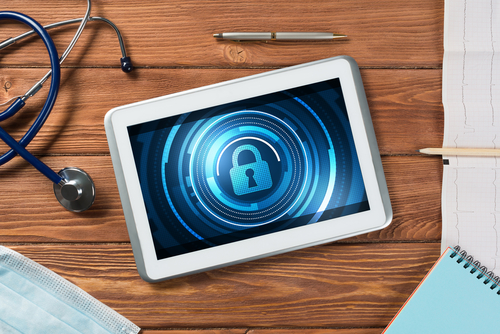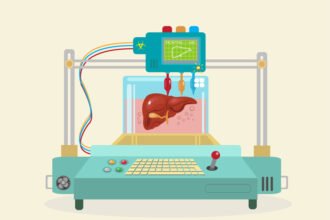Cybersecurity is vital for businesses in every sector today. However, it’s particularly important for those in the healthcare sector. There are several reasons why businesses in this arena can’t afford to put off cybersecurity measures and why tomorrow may be too late to do what you should have already done today. Here’s what you need to know about the importance of cybersecurity in healthcare.
Following The Health Insurance Portability And Accountability Act Is Meant To (HIPAA) Secure Patients
HIPAA was designed to protect patients’ private medical information from different threats. Tripwire says cybersecurity experts will play a major role in helping maintain network integrity and patient confidentiality in our internet-dependent, interconnected world today. In this world, there’s an increasing threat posed by cybercriminals that prompt the healthcare industry to spend more money on data security – especially when it comes to hiring highly qualified IT specialists (ones with a graduate degree or higher). Threats are bound to continue growing as the number of connected devices (e.g. telemedicine, wearables, smart beds, portable medical technologies) involved with the Internet of Things (IoT) also grows. All this has made the data security requirement more prominent than ever before. Now healthcare industries must expel data from information that’s shared in medical research, for different reasons, so it can be used to identify patients who conform to HIPAA. The only way to do this is by using cybersecurity experts whose job it is to make sure common shared data is both anonymous and encoded. They must also make sure that the data that’s targeted by hackers remain protected so it remains confidential. This is a very complex process today because scientists must analyze large amounts of data that uses big data technologies.
Raising Importance Of Data Security
Network security intelligence keeps your business’ data secure from any malicious attacks’ hackers conduct. However, this is becoming much more challenging today since medical data is quickly growing larger and more diverse. Fortunately, there are some standard procedures cybersecurity experts have created for managing big data. It’s imperative to follow these standards since you don’t want to be invaded by cyber attackers. You can also use these very same resources to identify and isolate any network threats you may encounter. This is because this technology’s main goal is securing your patients’ data. Security program vendors are also using big data to analyze information about past cyber attacks (e.g. identifying any known threats and patterns that indicate malicious activities). Other advanced technologies like AI and machine learning are also being used to detect new and unknown strategies cyber attackers are using today. All these things are inescapable and unavoidable now because of how reliant we’ve become on technology. Securing information is a process that will continue evolving in the future. One thing that must change though is the fact that while most organizations have money to spend in this arena, only about 70% of them have an alternate course of action set up for preventing cyber attacks. Even the 30% who have these plans have trained specialists who can deploy the measures.
Population Is Growing Fast So Efficient Care Is Key
Core PHP News says in the past the healthcare industry encountered times when they had no choice but to waste hours of their time filling out necessary paperwork instead of spending this valuable time taking care of their patients. Obviously, this made care inefficient since patients weren’t receiving what they needed regardless of how many hours healthcare professionals worked. Now that this information saved within databases and networks healthcare professionals can be more efficient, but now they’re facing another issue: cybersecurity. All these factors are important today when our population is growing so fast that even the most efficient practices aren’t enabling healthcare professionals to keep up.
There are a number of ways that healthcare providers are offering more efficient healthcare. One option is with telehealth services. You can expand example for telehealth security.
Cyber-Security Saves The Healthcare Industry Millions
When you do compare the efficiency of today’s healthcare system to that which we experienced 20 years ago, we see that technology has made it so that we no longer need as many professionals. This is great for the professionals who do still work in the industry because they can now take care of more patients in an 8-hour period than what they used to take care of in a 12-hour time period. All of this is thanks to the fact that there’s less physical paperwork to complete. It’s also easier for professionals to exchange information with their colleagues. Documentation is now easier too since it’s stored within networks – something that opens more equipment and patient beds without as much required storage.
Leaked Patient Information Can Be Costly
One of the biggest benefits of cybersecurity is that it keeps patient information from being leaked. Of course, the healthcare industry is also benefiting by saving a lot of money by being more efficient today. Efficiency alone won’t prevent cyber attacks from occurring and when information has leaked the money that was saved is often quickly spent so that the health care entity doesn’t go under. This is why prevention is so important. Fortunately, Protectimus says there are several ways, outside of identity theft that fraudsters use stolen medical records, including:
- Fraudsters may receive medical care at the expense of others. Considering how expensive some treatments and physician services are, this can wreak havoc on the victim’s financial well-being.
- Those healthy hackers can make good money ordering expensive medications on behalf of legitimate medical cardholders then reselling these medications.
- Sometimes criminals will even go so far as to conspire with employees who work at an unscrupulous clinic. When this happens, an insurance company may be billed for services that their patient has never received. The money that is made is then divided between the clinic and the fraudsters.
What Your Business Can Do: Healthcare Data Security Tips
Even with all the dangers encountered by healthcare data security today, there are still plenty of ways to reduce the risks. Medical facilities must step up and protect their data from the following threats:
- Targeted attacks
- Outside hackers
- Viral infections
- Employees who act in ways that allow them to steal medical records
Cybersecurity experts can usually protect medical institutions from targeted attacks and outside hackers. However, the human factor is more difficult to deal with. Here administrations not only need to work with their staff, but they must also incorporate reliable, strong user authentication when accessing electronic medical records and patients’ information.









